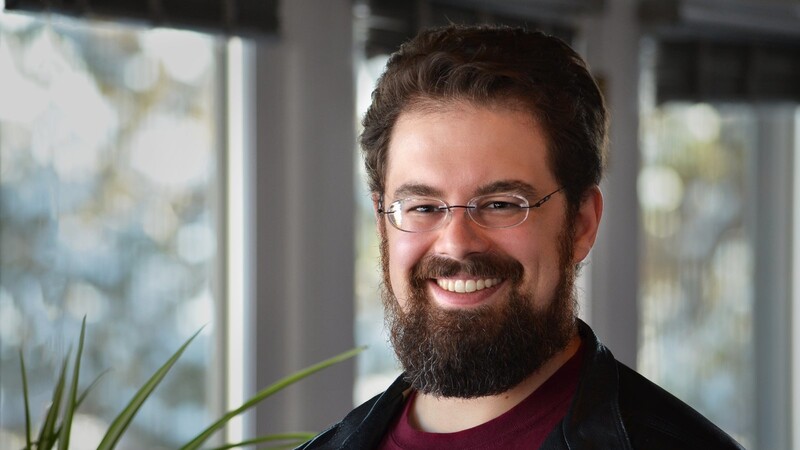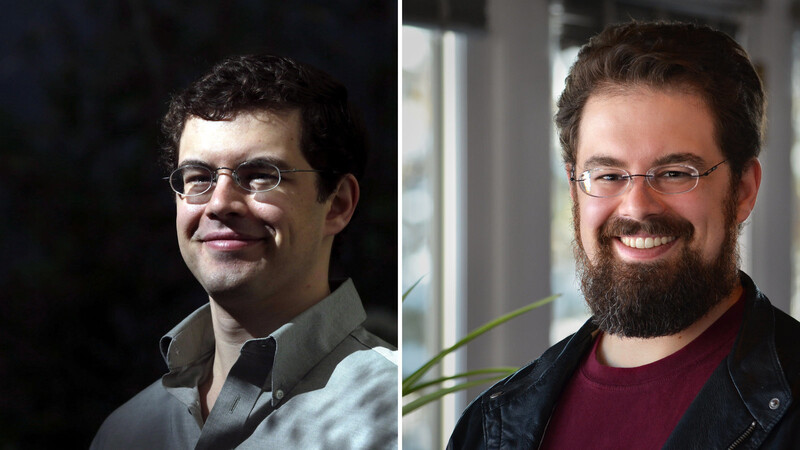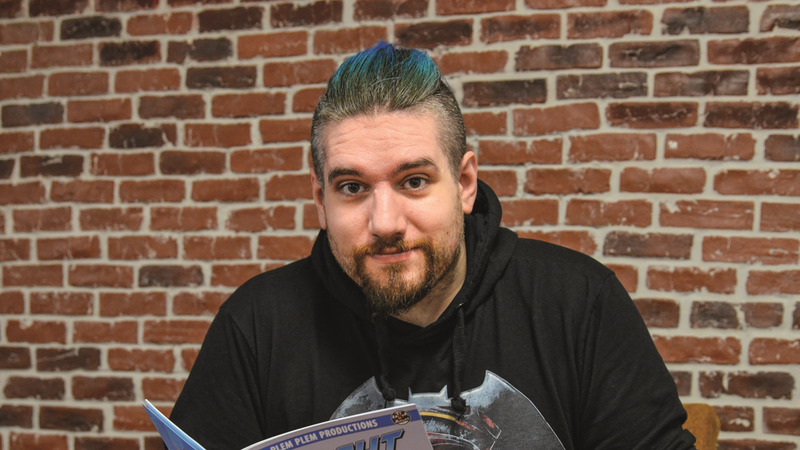Interview auf Englisch
Christopher Paolini über seine Karriere und neues Buch „Murtagh“
5. Dezember 2023, 16:17 Uhr

Immanuela Meijer
Seine „Eragon“-Bücher haben Christopher Paolini berühmt gemacht.
Murtagh is the first novel in the world of Alagaësia in twelve years (except for the Fork, the Witch and the Worm, but those were shorter tales). What was it like to return to this world after all this time?
Christopher Paolini: I had a ridiculous amount of (sometimes devilish) fun writing Murtagh. It was also rewarding to return to the World of Eragon with an additional twelve years of experience. As with my short story collection, The Fork, the Witch, and the Worm, revisiting these characters felt like coming home after a long absence. It was good for the soul, is what I’m trying to say. And to release this book on the twentieth-year anniversary of Eragon only makes it better.
Murtagh is quite the fan favorite. Did this knowledge influence your writing process?
Only in the sense that I knew there was an audience for a story centered upon him. That and I wanted to live up to readers’ expectations for—and past impressions of—Murtagh. None of which dictated what I ultimately wrote, but it did give me an idea of what I needed to accomplish with this book.
What are the differences between Murtagh as a protagonist and Eragon?
Murtagh is a much more complicated, conflicted, and troubled character than Eragon. He had a difficult upbringing, and at the start of this book, he and Thorn are outcasts reviled by most of the peoples of the land. Which leaves Murtagh somewhat resentful, given that he did play a pivotal role in helping Eragon win out at the end of the Inheritance Cycle.
All of which is great dramatic material for a story. I really enjoyed writing about Murtagh. After the dragon Saphira, he’s become my favorite character in the series.
Alongside your Eragon-Books you have also published To Sleep in a Sea of Stars and Fractal Noise, two SF-Novels. How is writing Fantasy different from writing Science Fiction?
It depends on what kind of fantasy or science fiction you’re writing. In my case, I wanted to be fairly rigorous with the worldbuilding of my science fiction, which led me to spending over a year doing research before I started To Sleep in a Sea of Stars. As a result, when I break the known laws of physics in my sci-fi, I have a somewhat reasonable, scientific explanation for it. But when I do it in my fantasy, the explanation is just: “It’s magic.” (Even if the magic itself has fairly rigorous rules.)
You´ve written books and stories since you were 15. How did the publishing business change in those years? Was it easier back then to get recognized as a young author than today?
Difficult to say. On one hand, with the rise of digital publishing—there were no e-readers back in the day—it’s far, far easier to self-publish compared with when my family and I did it. But as a result, there’s also more competition these days. Similarly, it’s easier to promote via social media ... but standing out on social media can be extremely difficult. Ultimately, one has to write a book that people want to read, and then you have to be willing to devote just as much effort (if not more!) to promoting it.
Also, how did you change as a writer? Maybe you can give us an example of your writing process and how that changed - or didn´t change - over the years.
Since I started, I’ve learned a huge amount about the technical aspects of the craft, which has definitely altered my prose. I’d point to specifics, but the examples are too numerous and, sometimes, too subtle to easily list. Hopefully, though, these additional literary tools have allowed me to more effectively convey Murtagh’s story.
Also, just getting more life experience has been invaluable to becoming a better writer. As powerful as pure imagination can be, there’s no substitute for actually doing, feeling, and as a result—if one’s lucky—learning.
Is there anything from the early days that you miss? In contrast, is there anything about your current writers-life that you prefer?
Not particularly. I’m a much better writer (and person, I hope) than I was when starting out. That, and it’s been amazing to watch my readership grow and evolve with the books. These days, when I do a public event, I have people coming up with the most touching stories of what the books have meant to them over the years. As an author, I couldn’t ask for more.
Looking back, is there anything you would change about the first four "Inheritance"-Books, now that you are a more experienced author?
Of course! I think I could do a much better job, on a line-by-line basis, of writing them. There are also some scenes I would add or tweak. For example, I think it would have been nice to see a little more of Eragon and Saphira as she was growing up. And I would add at least one chapter from Nasuada’s point-of-view showing how the Varden traveled from Farthen Dûr to Surda. Things like that would make for a slightly richer reading experience.
That said, I did the best I could when writing the books, and I’m proud of what I was able to accomplish.
If you had a time machine and were able to travel back an meet your younger self, who just published Eragon, what would you tell him?
Don’t worry so much. It’s all going to work out in the end.
That, and just because you write a bad sentence/paragraph/scene/storyline/or even first draft, doesn’t make you a bad writer. Making mistakes is a natural part of the process. What will make you a bad writer is if you refuse to go back and fix what needs fixing.
Oh, and don’t forget to have some fun along the way.








